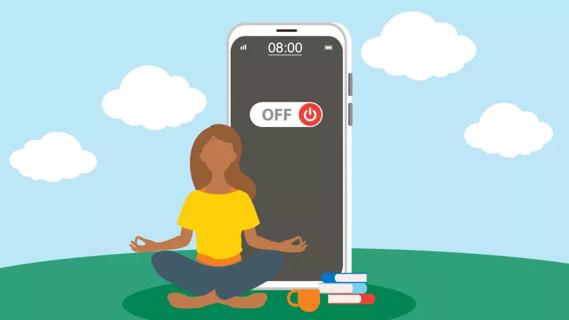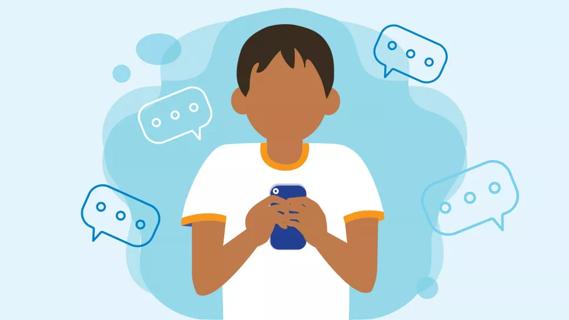Imagination, completing tasks and social interactions are all key benefits for your brain

Video games can offer a considerable amount of adventure and entertainment.
Advertisement
Cleveland Clinic is a non-profit academic medical center. Advertising on our site helps support our mission. We do not endorse non-Cleveland Clinic products or services. Policy
Traditional games, like Tetris, or the more modern Candy Crush Saga, are puzzling brain-busters.
Others, like Nintendo’s Breath of the Wild or Ubisoft’s Assassin’s Creed series, can provide an escape from the real world.
Even new technologies have given rise to exergaming, or video games that marry technology with physical activity, like Ring Fit Adventure.
But many parents and caregivers are left wondering: Are video games good for my child and their developing brain?
Pediatric behavioral health specialist Michael Manos, PhD, and child psychiatrist Joseph Austerman, DO, explain how video games might affect your child’s brain in good and bad ways, and when video game addiction becomes a real problem.
Research into how video games affect the brain is a bit of a mixed bag. For starters, the benefits you receive depend on what kind of video game is being played. A 2020 overview of commercial video game studies suggests different types of video games improve different cognitive functions.
Hitting a pixelated dot back and forth allows for a different set of skills than when you’re playing a first-person shooter like Call of Duty, for example. Those games are also very different from building simulators like City Skylines or Civilization VII. Those require strategy and critical thinking. And when it comes to games like Wordle, our brains face a different set of challenges related to language and memory.
Advertisement
“When looking at video games in general, we tend to find that visuospatial effects, like hand-eye coordination, and directed attention tend to get a little better when we’re playing video games,” shares Dr. Austerman.
But what’s unclear is how these benefits translate to the real world outside of gaming.
“Studies show while you’re playing games, these things improve,” he adds. “But those skills may not translate to real-world activities.”
That’s important to keep in mind when looking at these possible benefits:
“Video games can actually improve social connectedness,” says Dr. Austerman.
If your child has friends from school who play video games online, it allows them a secondary safe space to foster those relationships. And if your child has a hard time making friends, online relationships with other kids their age may also be beneficial.
“What kids are able to do now is connect to people around the world that share their interest and share their belief system,” he continues. “When they’re not getting those in-person relationships, they may be getting that support in online relationships through multiplayer gaming.”
Of course, online gaming (like social media) comes with pros and cons. While they’re exposed to new relationships, your child may also be exposed to cyberbullying, people they don’t know with ulterior motives and sophisticated marketing tools your child is ill-equipped to handle.
“There are safe ways to do it,” notes Dr. Austerman. “You can limit your kids to only being able to connect with friends or people they know in their life and you can monitor their activity.”
“Like stimulants, video gaming can increase gray matter in the brain,” says Dr. Manos. “Grey matter provides interconnectivity and allows parts of your brain to communicate with other parts of your brain and advance your self-perception.”
Your brain’s grey matter — the outer-most layer of your brain — is responsible for controlling your movement, retaining your memories and regulating your emotions. Essentially, the more you learn, the more your brain can grow and adapt.
Video games are interactive. Take a role-playing game (RPG), like Baldur’s Gate 3 or Mass Effect, for example: There’s a long list of main quest objectives you have to complete in order to beat the game. But you also have a longer list of side objectives that are optional to flesh out the game’s story and reward system.
How you choose to proceed in these games is entirely up to you. With player freedom comes increased feelings of accomplishment for every task you complete and a greater sense of imagination.
“A constant barrage of reinforcement occurs often and in succession with video games,” explains Dr. Manos. “The danger of a particular situation and the resolution of a situation gives you a sense of accomplishment, which doesn’t happen very much in real life. This makes video games incredibly stimulating and difficult to withdraw from to do less engaging tasks like chores in the home.”
Advertisement
You often have to pay close attention to visual and auditory cues to accomplish certain tasks in a video game. Action-adventure games like Tomb Raider or Resident Evil have quick-time events (or QTEs). With QTEs, you have to push a button that matches a symbol on the screen within a very limited amount of time in order for something to happen.
“When you’re watching a video game, you’ve got to pay attention to every little thing that comes into your visual field and react to it,” notes Dr. Manos. “Being able to visually contrast — being able to tell the difference between one thing and another — is also a skill that can be developed by playing video games. But it may not be generalizable to real-life activities, like following instructions given by an adult.”
Video games make you set-shift constantly.
Set-shifting is the ability to move back and forth between different tasks in quick succession. The ability to direct our attention from one thing to the next — like cooking dinner on the stove while listening to a podcast or pausing a video game to start a load of laundry — is an important skill to have.
“People switch tasks all the time,” shares Dr. Manos. “That executive function tends to get a little better with automatic attention tasks when playing a video game. But it doesn’t facilitate switching from automatic attention to directed attention.”
Advertisement
Meaning, outside of a video game, set switching requires intentional effort on your part and embracing certain behavioral changes that allow for that to happen.
Often, video games require you to remember key information in order to complete tasks. Maybe you have to remember a specific code in order to open a combination for a locked door.
“Those can actually be beneficial to memory,” notes Dr. Austerman. “What we don’t know is if this is long-term or within a very defined realm.”
Still, video games can be used to enhance strategies in education. Take the museum mode in Assassin’s Creed, for example. This mode allows you to walk through and explore 3D recreations of ancient locations like the Parthenon in Greece.
“The key is actually making it historically accurate,” he continues. “But as we integrate and utilize more of our senses and experience more of a richer context, video games allow us to retain that information and further develop our understanding of key concepts.”
A 2022 Oxford study of nearly 40,000 gamers found that gaming doesn’t appear to have damaging effects on a person’s mental health — unless they have a hard time walking away from gaming.
It’s the latest in a large body of research that’s been slowly building over the last decade suggesting internet and video game addictions are a real problem, despite video game addiction only affecting 3.05% of the world’s population.
Advertisement
Young people in particular are faced with other negative consequences when they develop video game addiction. One study found elementary school students experience poor academic performance and worse grades when they’re dependent on video games for entertainment.
“It becomes a problem if you see consequences to the kids being on the screen and getting off the screen,” explains Dr. Austerman. “If you say it’s time to put the screen away or stop a video game and the child has an emotional outburst, that’s a big red flag. That means they can’t handle the amount of screen time they’re getting.”
Other red flags that video games may be causing consequences for your child include:
“All of these things are red flags that signal you need to cut back on the amount of screen time they have because they’ve become dependent on it and it’s gotten in the way of normal emotional development,” he states.
It’s important to set some hard limits with screen time. The younger your child, the less they should interact with video games and other screen-based media.
“Generally, the younger your kids are, the more strict you should be with their exposure to on-screen media including video games, social media and other videos,” advises Dr. Austerman. “You want to maximize in-person communication and connectedness as much as possible for as long as possible.”
He suggests following the American Academy of Pediatrics recommendations:
“The more time you spend on screen, the less time you’re face-to-face with somebody in person,” he stresses. “There may be long-lasting detrimental emotional connection effects of that long term, especially the younger you’re exposed to video games.”
Beyond screen time, parents may want to be conscious of the content their child consumes.
Historically, video games have had a bad rap because there’s been a long-time misconception that violent action games cause children to become more violent.
“There’s no evidence showing that video games increase real-world violence,” clarifies Dr. Austerman. “But there may be kids who are prone to violence that may seek out violent video games.”
The Entertainment Software Rating Board (ESRB) makes informed decisions on who should access video games based on their age group. For example, games rated E (for everyone) may contain mild violence but are understood to be suited for all ages. Games rated M are geared for people 17 and up because of things like intense violence, gore and sexual content.
As a parent, you probably know your child best and what they can or can’t handle. But following these guidelines is perhaps most important for younger children.
“What we do see is that anytime young kids are exposed to violence, they can begin to have anxiety symptoms. They can begin to have mood symptoms. And they tend to be less reactive to real-world violent situations,” shares Dr. Austerman. “So, they tend to have less empathy for others.”
According to a 2023 summary of current data and previously published research, more than 90% of American children play video games and 75% of American households own a video game console.
“Video games, whether they’re good or bad, aren’t going anywhere,” says Dr. Austerman. “The time we spend in front of screens, immersed in these worlds, is only going to become a larger part of our lives.”
That means you should set ground rules around video games the same way you set ground rules for other avenues of playtime.
“You want your kids to have fun at the playground, but you also want to monitor them and know what they’re doing. You want to have a line of sight on them. When they’re online or playing video games it’s no different,” he continues.
“You want to have a virtual line of sight on them. You want to know who they’re connecting with, how they’re connecting with them and what they’re doing.”
One way to strengthen your relationship with your children around video games is to play alongside them.
“Just like you would have family game night in the past with everybody gathering around the table to play a board game, there are similar benefits to everybody playing the same game together,” he shares. “Whenever you marry video games with in-person interactions, there’s a benefit.”
At the end of the day, encouraging your child to play around with the technology that’s given to them couldn’t hurt as long as you’re vigilant and communicative about the possible dangers they’re facing whenever they play a game or get online.
“Video games themselves are not good or bad. This is the world we’re living in and we’ll continue to progress down this path,” says Dr. Austerman. “A parent’s job should be to moderate their child’s exposure, watch out for dangers and utilize this time to connect with their kids. It’s a good time to meet them where they’re at.”
Learn more about our editorial process.
Advertisement

It isn’t a recognized mental health disorder, but research shows that problematic social media use can negatively affect your mental health, self-esteem and sleep

Too much blue light, especially from digital sources, may lead to eye strain and computer vision syndrome

When done in excess, watching TV can disrupt your sleep and lead to physical inactivity and social isolation

They’re fun to watch, but medical TV shows are often more hype than reality — and you shouldn’t rely on them for factual medical information

Embrace mindfulness and practice checking your phone consciously, not compulsively

Identify your triggers, set ground rules for your break and start practicing mindfulness

Too much screen time and unrealistic expectations and perceptions and can lead to an increased risk of anxiety and depression

It can affect your child’s development, but not in a way you might think

Wearing a scarf, adjusting your outdoor activities and following your asthma treatment plan can help limit breathing problems

Your diet in the weeks, days and hours ahead of your race can power you to the finish line

When someone guilt trips you, they’re using emotionally manipulative behavior to try to get you to act a certain way